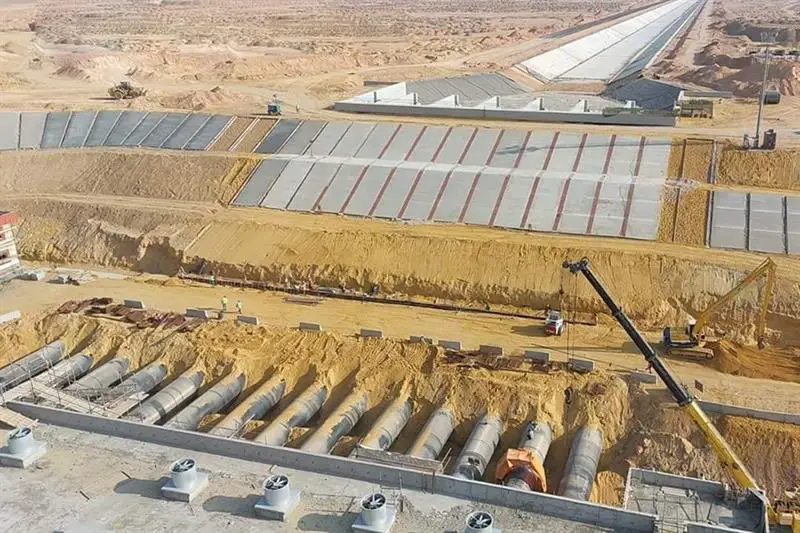According to the Egypt Independent, Egypt has started constructing an Artificial River parallel to the Nile River that will be 114km long. As part of its “New Delta” project, Egypt is slicing through the desert to build the largest artificial river in the nation’s northwest, close to the Dabaa nuclear power station.
Abbas Sharaky, a professor of water resources and irrigation, stated that the first channel is 4km long. It will consist of 16 km of open tracks and 26 km of pipes. And is used to transport roughly 10 million cubic meters from the Rashid branch, which is a part of the Mostakbal Egypt project.
According to him, this is the first stage of the massive project in the New Delta. Which will eventually irrigate 1.05 million acres across six significant water pumping stations. Furthermore, it will use a total of about 3.5 billion cubic meters of water annually to irrigate about 600,000 acres.
Also Read: Partnership agreement signed for Entrada and Avenue Mall Projects in NAC, Egypt
Cost of the Artificial River project in Egypt
The project, which is estimated to cost $5.25 billion, will irrigate 2.2 million acres. It will be the longest of its kind in the world.
The second channel, which is about 170 km long and starts at Hammam station, moves 2.5 billion cubic meters of water, or seven million cubic meters per day, to the south of Dabaa, where it is used to irrigate about 800,000 acres. Of this distance, 22km are pipes with a length of 220 km and a diameter of three meters. And 148km are open canals with 13 water pumping stations.
Furthermore, the third channel within the Jannat Masr (Egypt Artificial River) project consists of two 12-kilometer-long pipelines. Which will be used to desalinate salty groundwater through 132 deep wells and three water pumping stations. As well as irrigate about 64,000 acres in the city’s southern and western wastewater treatment facilities.

Leave a Reply